Unlike traditional small-scale production, Hanoi is fully exploiting the "gold mine" from concentrated specialized farming areas to raise the level of OCOP, thereby increasing the value of agricultural products, expanding the market and improving the lives of rural people.
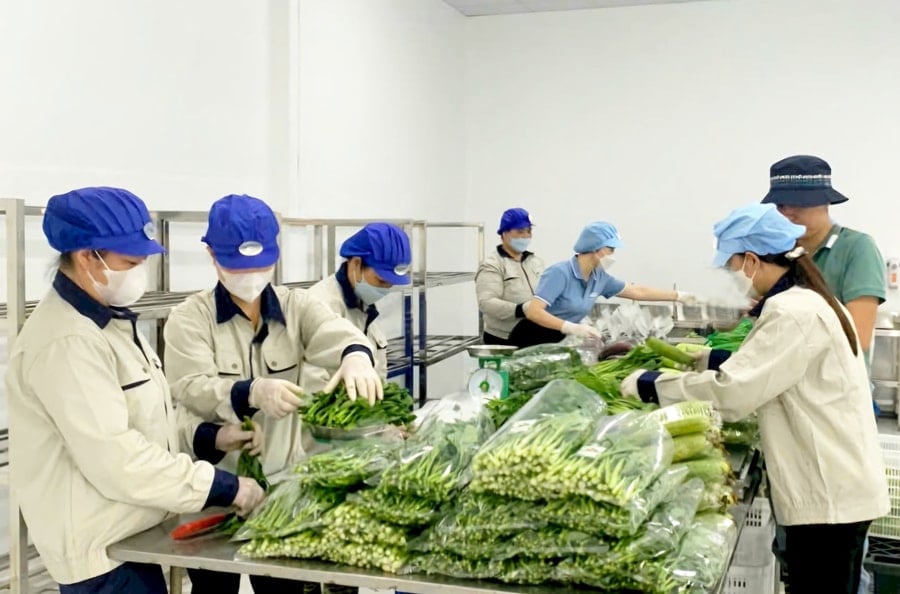
Packing vegetables at Van Duc Safe Vegetable Cooperative (Bat Trang commune).
Exploiting the "gold mine" from specialized areas
Doan Ket Agricultural Production and Business Cooperative (Van Dinh commune) is one of the very successful models in developing OCOP products from concentrated specialized cultivation areas. In recent years, the cooperative has linked with thousands of farming households to produce rice on a large scale according to VietGAP standards and apply new techniques, using safe biological products for rice plants. Along with that, the unit invested in drones, rice drying systems, milling and packaging products... that meet the standards to enter supermarkets and even aim for export. The cooperative's OCOP products have been recognized as meeting 4-star OCOP standards.
Director of the Doan Ket Agricultural Production and Business Cooperative Cao Thi Thuy said that since specializing in production and being certified as OCOP, the consumption of the cooperative's products has been favorable, with profits increasing by 20% to 25% compared to before.
Van Duc Safe Vegetable Cooperative is one of the key vegetable growing areas in Hanoi with an area of nearly 200 hectares. Thanks to participating in OCOP, 17 vegetable products of the cooperative have been certified, easily entering supermarkets, collective kitchens and having higher selling prices compared to selling at wholesale markets. In the Van Nam beach area (Phuc Loc commune), Van Nam Cooperative specializes in growing red bananas and Thai bananas. The products have been certified with 4-star OCOP, supported with labels and trade promotion to be brought into collective kitchens in schools and the army, so banana growers are very secure about the output and have better income than other crops.
There are many agricultural products with OCOP products from specialized areas in the city that have been evaluated, classified and brought high economic efficiency. According to the Department of Agriculture and Environment of Hanoi, in recent times, the unit has advised the Hanoi People's Committee to plan concentrated specialized areas and issued many resolutions and policies to support the promotion of concentrated, large-scale commodity production, associated with product preservation, processing and consumption.
Currently, Hanoi has 35 rice growing areas, 104 vegetable growing areas, 56 fruit growing areas, and 128 concentrated livestock farming areas. This is a solid foundation for building the OCOP value chain and brand. Up to now, Hanoi has had more than 3,400 OCOP products evaluated and certified, accounting for about 20.3% of the total OCOP products in the country. Many OCOP products originate from specialized farming areas.
Policy and recommendations for "perfecting the value chain"
Despite many achievements, the development of OCOP from specialized areas in Hanoi still faces many challenges: Production scale in many places is still small and scattered; many cooperatives are weak in technology, brand building, and design. The ability to access export markets, apply digitalization, and trace origin is uneven.
From the perspective of production subjects, enterprises and cooperatives have made practical recommendations. As the subject of many OCOP products recognized by the city, Director of Vinh Ha Safe Food Production and Trading Joint Stock Company (Dai Xuyen commune) Nguyen Thi Mai shared that the company's safe vegetable products are being supplied to schools in Hanoi. Ms. Nguyen Thi Mai hopes that the State will have policies to support capital and infrastructure for production areas such as building factories for preliminary processing, processing, and preserving agricultural products in production areas, to ensure product quality and save transportation costs.
Mr. Nguyen Tuan Hong, Bac Hong Safe Vegetable Production and Consumption Cooperative (Phuc Thinh Commune) suggested that enterprises and cooperatives investing in agricultural production are mainly small enterprises with limited investment capital, so spending money to accumulate land will be very difficult. The unit hopes that the government will support the association with farming households to form concentrated, large-scale production areas; build production areas applying high technology.
To develop OCOP from specialized areas, Hanoi has introduced many policies, focusing on supporting entities to build standard raw material areas, according to organic, safety, VietGAP, GlobalGAP, HACCP criteria, building growing area codes and growing area brands for OCOP products... In addition, completing product assessment and classification records; building a production - consumption chain; implementing trade promotion, connecting markets. At the same time, promoting trade promotion, connecting consumption of key agricultural products, OCOP products, regional specialties, not only domestically, but also for export; encouraging businesses and cooperatives to build, register and develop brands, promote and connect products through communication channels, fairs, and electronic trading floors.
According to Ngo Van Ngon, Deputy Chief of Office of the Hanoi New Rural Development Program Coordination Office, from concentrated specialized areas, Hanoi's OCOP products such as: Rice, vegetables, tubers, fruits, medicinal herbs, tea, processed agricultural products... have emerged with a new look, larger scale, higher quality, clearer brand, contributing to increasing the value of the capital's agriculture and changing the lives of rural people.
Source: https://hanoimoi.vn/ha-noi-dot-pha-san-pham-ocop-tu-vung-chuyen-canh-722423.html






![[Photo] Da Nang: Hundreds of people join hands to clean up a vital tourist route after storm No. 13](https://vphoto.vietnam.vn/thumb/1200x675/vietnam/resource/IMAGE/2025/11/07/1762491638903_image-3-1353-jpg.webp)
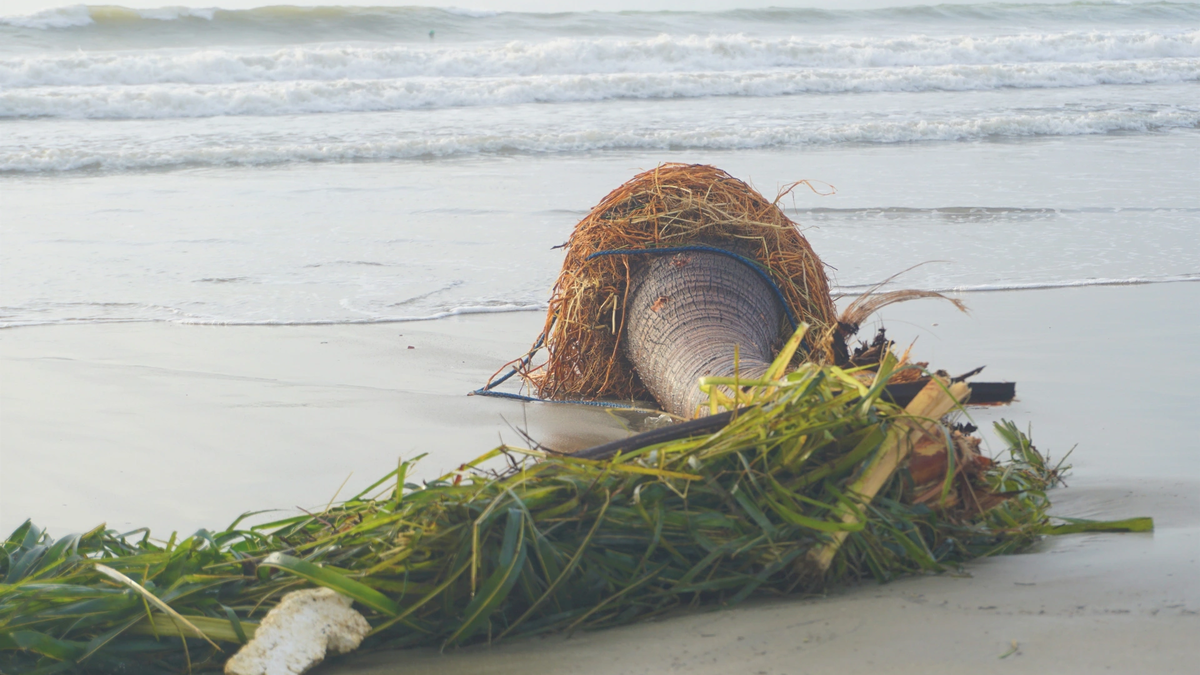
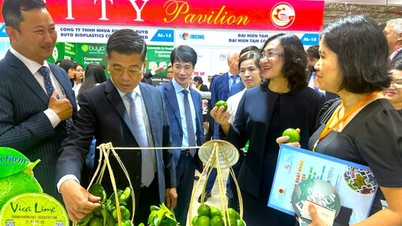



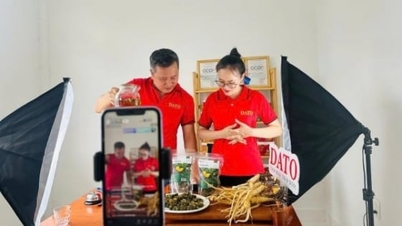

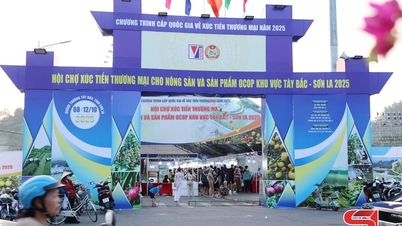


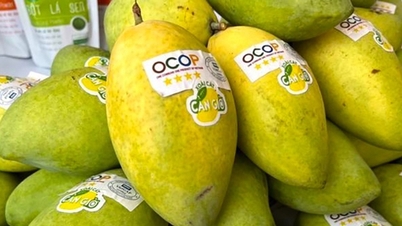

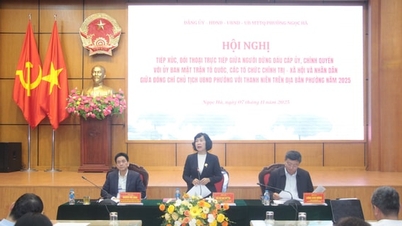

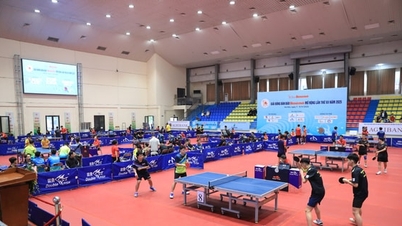


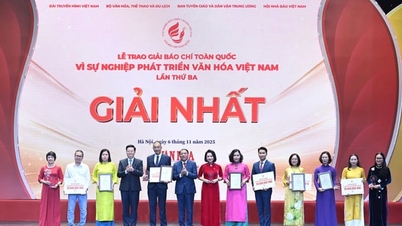





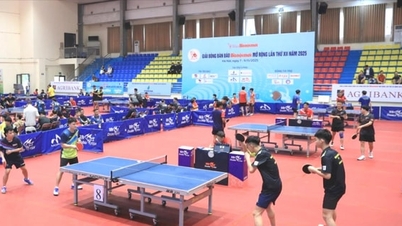


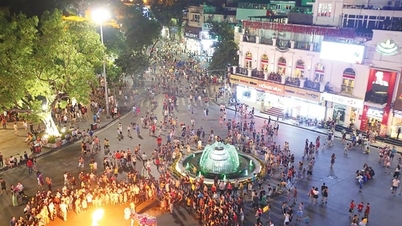
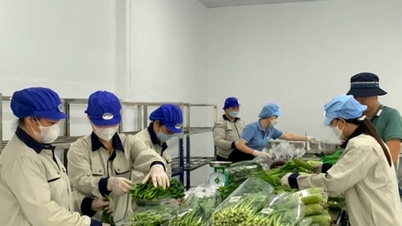












































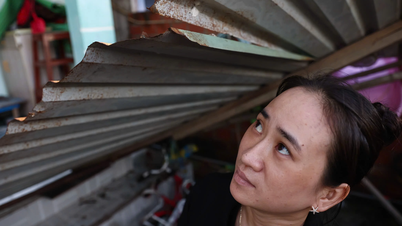






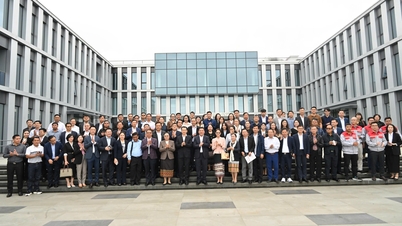

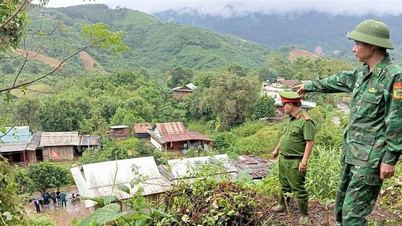





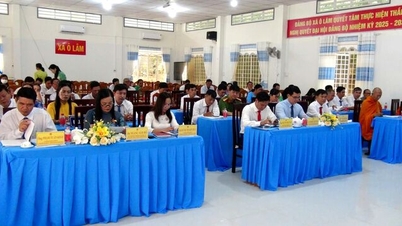
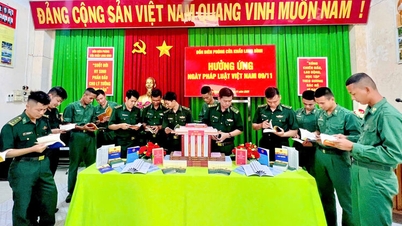















Comment (0)